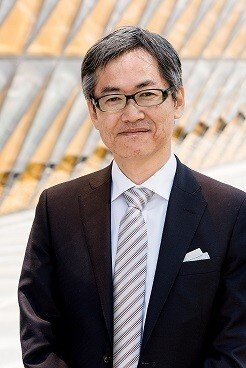“The student network made learning interactive and insightful”
Junichiro Toya participated in the Master's Courses in Dementia Care for Physicians and graduated as a Silvia doctor. He is a family practitioner at the Sakura-shinmachi urban clinic in Musashino, Japan, who cares for patients with dementia in their homes.
"I learned about dementia care systematically and comprehensively in this master course. And I will now try to make an education system for dementia care for family physicians in Japan."

How useful will the education be in your profession?
– I learned about dementia care systematically and comprehensively in this master course. And I will now try to make an education system for dementia care for family physicians in Japan.
During the course I have learned about dementia care in various phases of the disease, systematically and holistically. From dementia screening, diagnosis, management of behavioral and psychotic symptoms of dementia, BPSD, to terminal care and supporting of the family. All subjects and themes in the course were provided with practical exercises and patient cases from the viewpoint of the daily practice as a physician. It has made me reflect upon my clinical practice and rethink what I can do best for my patients as a general practitioner.
What are the challenges for dementia care in Japan?
– Japan has rapidly become a super aging society. The Japanese government has therefore promoted to shift the health care system from hospital-centered to community-based.
For nearly ten years, I have changed the focus of my daily practice from outpatient to in-home medical care. Through my clinical experience from visiting patients at home and at care facilities, I have come across an increasing amount of people with dementia in various phases of the disease.
I felt that many of those with dementia and their families had not received sufficient care and support, despite the fact that they had many problems and difficulties in their daily lives due to dementia. I also recognized that there was a lack of education in dementia care for primary care physicians, community nurses, professional caregivers and the staff at care facilities.
It has been said that the rates of dementia diagnosis and management in primary care settings are low in Japan. Primary care physicians are, however, expected to play a central role in dementia diagnosis and management as the number of people with dementia is estimated to reach 7 million in 2025 in Japan.
How do you like the web format?
– One of the main reasons for me to decide to participate in and to be able to continue this master's program, despite working full-time, was that the course was provided through the web as a distance education. The contents of the course could be accessible at any time and any place by smartphone or tablet. It enabled me to sometimes spend my commuting time studying. It was also very useful for me to have access to the online library at Karolinska Institutet as I could read and download articles from its vast collection of scientific journals.
The course has provided an international network of physicians working in dementia health care. Has the network been useful for you?
– It was required that the classmates reviewed each other’s course reports. This has made learning more interactive and insightful. All participants from various countries are physicians who have some kind of sub-specialty like myself. Through peer review-style discussions, I had many opportunities to learn from my classmates, such as from their specialist’s works and the knowledge and views they provided. It was also useful to discuss and understand the differences in the dementia health care systems in various countries.
